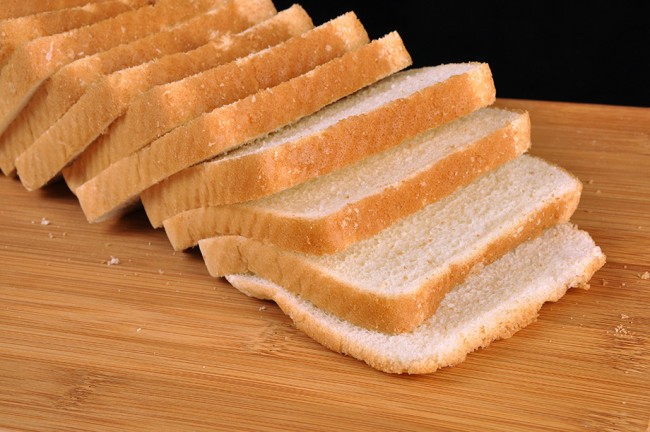Food is the fuel that our bodies run off of. It plays an enormous role in how we look and feel. So we have to be conscientious of what we eat.
Some foods out there are perceived as healthy, but are actually quite the opposite. These are true dangers to our diets, because we may eat more of them thinking they improve our health.
So it’s time to start avoiding these 4 foods:
1. White Bread
White bread is a staple in most households, but the truth is that it contains little nutritional value. It contains more sugar than grain. It is also far less filling; meaning you have to eat more of it to feel satisfied after your meal.
Try eating whole wheat or whole grain bread instead. These types of bread are good sources of gamma-oryzanol, which is known to lower cholesterol levels if consumed regularly. Grains can also be a good source of dietary fiber.
2. “Reduced-Fat” Foods.
With names like “reduced-fat” and “fat-free,” these options seem like a beneficial option for those looking to stay healthy. However, they are often more harmful than their regular counterparts.
The fat in foods often adds to the flavor. When fat is removed, something else must take its place so that it doesn’t lose taste. This place holder is almost always salt, sugar or artificial sweeteners, all of which are worse for your health than fat. Some fats are actually good for you. These replacements can lead to a greater risk of diabetes or heart disease.
So while the words “fat-free” and “reduced-fat” seem enticing, you should avoid them when you can.
3. Creamy Salad Dressings
When people want to lose weight or eat healthier, many turn to salads. This is a good idea in most cases. Salads, in most cases, can be nutritious and low in calories.
However, not all salads are created equal. Salads in some restaurants can surpass 1,000 calories! It’s not the salad’s fault, but what comes on top of it. Cheese, bacon bits, croutons and dressings can quickly turn your healthy meal into an attack on your body.
One of the biggest culprits is cream-based salad dressing. Some of these dressings contain more fat and calories than the salad itself. Instead, try oil-based salad dressings or simple lemon juice (and leave off the bacon bits).
4. Canned Tomato Sauce
Despite tomatoes being naturally sweet, most processors still add a bunch of sugar and sodium to their tomato sauces. Why?
It’s usually because their ingredients are subpar, which takes away from the taste of the sauce. Sugar is a quick and inexpensive fix for this problem, meaning you will often find it used liberally in canned tomato sauce.
Don’t completely eliminate tomato sauce from your diet, as it has a lot of beneficial aspects. Just make sure you check the nutrition labels. Or you can try making your own tomato sauce – it’s far more nutritious and delicious. Plus, it’s easy to make!
Interested in learning more about nutrition? Talk to your doctor about ways to eat better and feel better. Don’t have a doctor? Find one here.







